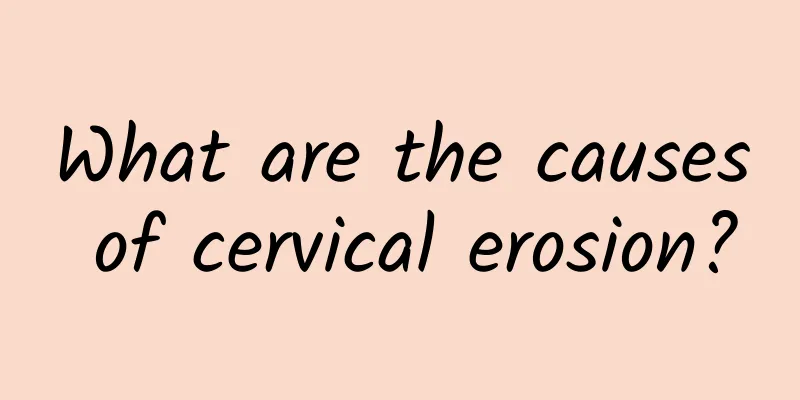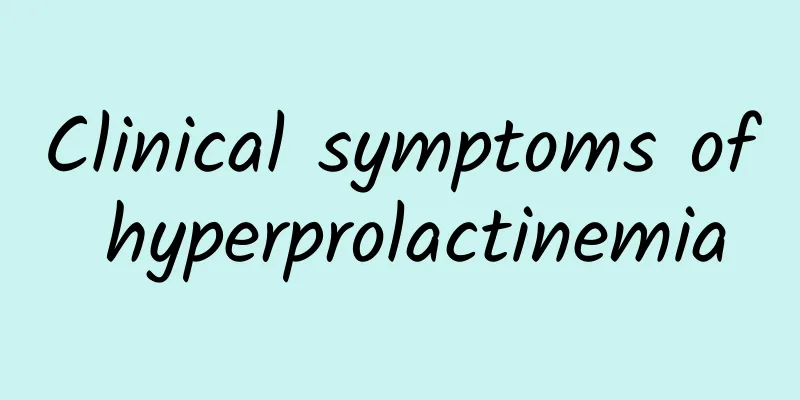Is it normal to have lower abdominal pain on the fourth day after an abortion?

|
Whether it is normal to have lower abdominal pain on the fourth day after an abortion depends on the degree of pain. Mild pain is usually normal, but severe pain should be a warning. 1. Mild pain Mild paroxysmal pain is usually related to the natural contraction of the uterus. This is the body's process of self-repair, and the uterus is gradually returning to its normal state. This kind of pain generally does not need to be too much to worry about, but it is necessary to keep an eye on it. 2. Severe pain and abnormal bleeding If the pain is very severe and accompanied by irregular vaginal bleeding, this may indicate that there is residue or infection in the uterine cavity. At this time, it is recommended to see a doctor as soon as possible and undergo a B-ultrasound examination to evaluate the recovery of the uterus. The doctor may provide appropriate treatment plans based on the examination results. 3. Treatment of residual in the uterine cavity For a small amount of residue, you can use blood circulation and anti-inflammatory drugs under the guidance of a doctor to help the body recover. If the residue is large, especially more than one centimeter, curettage may be required. After curettage, continue to take medication to prevent infection and promote recovery. 4. Life care and dietary advice Avoid sexual intercourse within one month after abortion to prevent infection. In terms of diet, eat more protein-rich foods such as eggs, lean meat and milk, which will help the body recover. Fresh vegetables and fruits can provide necessary vitamins and enhance immunity. It is also very important to get enough rest and avoid overwork. 5. Emotional and psychological support It is normal to have mood swings after an abortion. Keeping in touch with family and friends and seeking help from a counselor when necessary can help relieve stress and anxiety. 6. Regular review Follow up with your doctor to make sure you are recovering well. Regular health checks can help identify potential problems and address them promptly. Minor pain is a natural response of the body to recovery, but if the pain worsens or is accompanied by other symptoms, be sure to seek medical attention in time. While paying attention to the body, don't ignore your mental health. Comprehensive care can help the body recover better. |
<<: Can ovarian cysts affect pregnancy?
>>: Will adenomyosis disappear after menopause?
Recommend
Vulva itching with white discharge, what's wrong? Menstruation is delayed
Vulva itching with white discharge, what's wr...
What is a cervical biopsy? Perform a full body check
Nowadays, female friends are more likely to suffe...
How are uterine fibroids formed? What are the causes of uterine fibroids?
Among gynecological diseases, the incidence of ut...
Starch phobia? Ketoacidosis may lead to weight gain
Speaking of weight loss methods that are loved by...
What are the hazards of Bartholinitis to pregnant women?
When the Bartholin's glands are in acute infl...
Female patients should pay more attention after abortion
Abortion is a very common thing in today's so...
What is endometrial tuberculosis?
What kind of disease is endometrial tuberculosis?...
What are the consequences of Bartholinitis?
We must actively grasp the consequences of Bartho...
What are the serious consequences of uterine effusion?
Uterine effusion is one of the most common diseas...
Experts introduce several methods to relieve women's dysmenorrhea
Dysmenorrhea can be divided into primary and seco...
It is best for patients with pelvic inflammatory disease to detect its symptoms as early as possible
At present, the incidence of pelvic inflammatory ...
How is endometrial tuberculosis diagnosed?
The main manifestation of endometrial tuberculosi...
How to prevent dysmenorrhea in winter?
As the weather gets cooler in winter, the number ...
What are the symptoms and complications of ovarian cysts?
What are the symptoms of ovarian cysts? What are ...
What medicine should women take for irregular menstruation? People with irregular menstruation need to supplement 5 elements
Irregular menstruation is a common condition for ...









